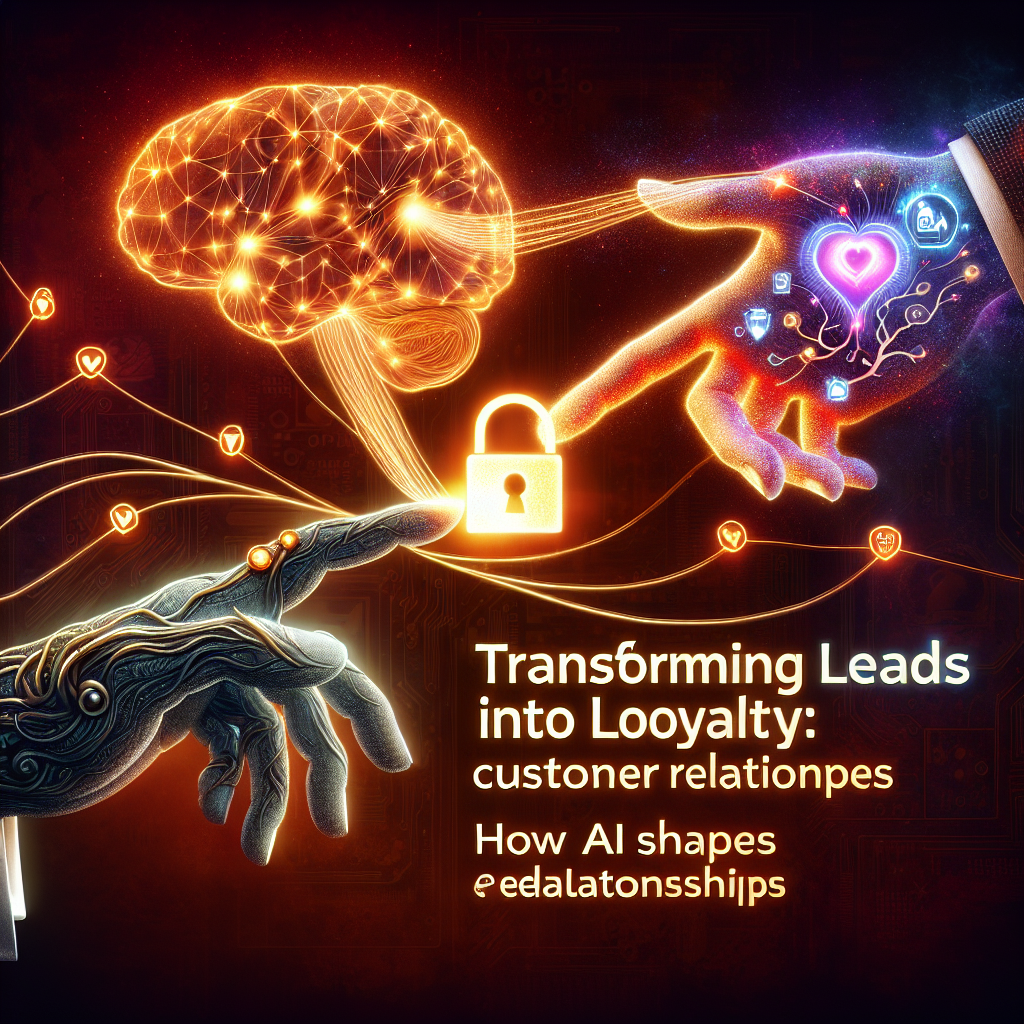In the modern digital environment, businesses are constantly looking for ways to boost customer engagement and cultivate lasting loyalty. As organizations navigate the intricacies of consumer behavior, Artificial Intelligence (AI) has emerged as a transformative force in reshaping customer relationships, enabling brands to transition from merely acquiring leads to nurturing devoted customers.
Exploring Customer Lifecycles
Customer relationships can be viewed as a journey, commonly referred to as the customer lifecycle. This journey usually encompasses several phases: awareness, consideration, acquisition, retention, and advocacy. Each stage demands targeted strategies that can evolve with changing customer needs and preferences. By harnessing AI, businesses can enhance every aspect of this lifecycle, ensuring a smooth progression from initial interest to sustained loyalty.
AI in the Awareness and Consideration Phases
During the initial stages of the customer journey, AI-driven tools are crucial for increasing brand visibility and drawing in potential customers. Solutions like predictive analytics enable businesses to grasp market trends and pinpoint potential leads. AI algorithms sift through data from various sources, empowering companies to create targeted marketing campaigns that resonate with particular demographics.
For example, AI can investigate social media trends, website interactions, and search behaviors, allowing brands to customize their content and advertisements effectively. By anticipating the interests of potential customers, businesses can not only capture attention but also nurture leads through personalized messaging.
Effortless Interaction and Customized Experiences
Once potential leads are secured, the next focus is engagement. AI-powered chatbots and virtual assistants have transformed customer interaction by delivering instant support and personalized experiences. These tools are accessible 24/7, enabling businesses to address inquiries, resolve issues, and gather insights about customer preferences.
The integration of Natural Language Processing (NLP) improves the capability of AI to accurately comprehend and respond to customer inquiries. As customers engage with these intelligent systems, businesses can collect valuable insights to further fine-tune their strategies. This data-driven approach ensures that communications are timely, relevant, and tailored to individual preferences.
Utilizing Customer Data for Retention
Retaining customers is vital for enduring success, and AI plays a significant role in this aspect. By analyzing past purchasing behaviors and engagement patterns, AI systems can detect trends indicating potential churn. Businesses can proactively reach out to at-risk customers with customized retention strategies, such as personalized offers or loyalty rewards programs.
Furthermore, AI can drive enhancements in product offerings and service delivery. Predictive analytics can forecast future customer demands, allowing businesses to innovatively adapt their offerings continuously. Tailored recommendations—often seen in platforms like Amazon—are another way AI can elevate customer satisfaction, making individuals feel appreciated and understood.
Fostering Advocacy Through Enhanced Loyalty Programs
Loyalty programs are a vital tool for nurturing long-lasting customer relationships. AI enriches these programs by personalizing rewards based on individual preferences and behaviors. Rather than offering uniform rewards to all, AI can analyze data to identify which incentives will resonate most with each user, thereby boosting engagement and satisfaction.
In addition, AI can assess the effectiveness of loyalty programs in real-time, enabling businesses to refine their strategies based on customer feedback and behavioral insights. By continually optimizing these programs, brands can cultivate a community of advocates who are not just loyal customers but also enthusiastic promoters of the brand.
Ethical Considerations in AI-Driven Relationships
While AI presents transformative capabilities, businesses must also address the ethical implications of its utilization. Data privacy and security are paramount, as customers expect transparency regarding how their information is used. Brands that prioritize ethical standards in their AI applications can foster trust, further solidifying customer relationships.
Businesses need to be clear about their data collection practices and ensure that customers maintain control over their information. Companies that manage customer data responsibly and with integrity can cultivate deeper relationships founded on trust and loyalty.
Conclusion
The influence of AI on customer relationships is significant, altering the approach businesses take to acquire, engage, and retain customers. By leveraging AI technologies, companies can personalize experiences, anticipate customer needs, and foster loyalty. As brands navigate the changing landscape of consumer behavior, those that responsibly and effectively embrace AI will not only convert leads into devoted advocates but also shape the future of customer relationships. The journey from leads to loyalty is no longer a distant aspiration; it is a reality attainable through the strategic use of AI.

